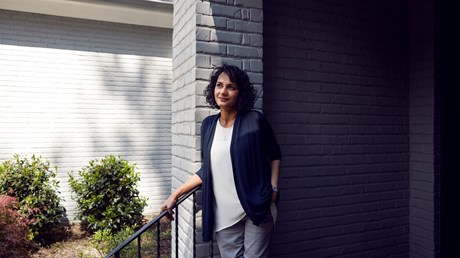How a passage in John’s gospel transformed my perspective on God and suffering.

Growing up, I was angry at God. To me, he was either heartless or distant, if he even existed at all. In any event, I wanted nothing to do with him.
My story begins in India, where I contracted polio as an infant before receiving the vaccine. The doctors mistakenly gave me cortisone to lower my high fever, allowing the virus to spread throughout my body, which left me paralyzed within days. They encouraged my parents to leave India to seek better medical care, so we moved to England and then to Canada. My first surgery was at age two, and I endured 21 major operations throughout childhood. Only at age seven was I able to walk.
What was then the Shriners Hospital for Crippled Children in Montreal functioned as a second home. I lived there for months at a time, once passing a nine-month stretch in a body cast. About a dozen other girls lived on the same ward. We could only see our families on weekends during the brief visiting hours.
Without parents around to guide us, we grew up on our own, making up our own rules and assumptions about life. We learned to do whatever the nurses asked, lest we get cold food, the last sponge bath, or the silent treatment. Since there was no one to hear our complaints, we all learned to stifle our feelings and do what we were told.
Giving God a chance
I vividly remember my friend Belva, one of the few mobile girls on the ward, who would play Barbies with me on my bed. She was sick for a few weeks and then suddenly disappeared. The next day, they took her things off her nightstand and remade her bed. When I asked where Belva was, I was sharply told to mind my own business. No one mentioned her again. I was perhaps too young to understand what had happened, but the loss hardened me.
Life between hospital ...
from Christianity Today Magazine
via


.gif)

.gif)
.gif)
